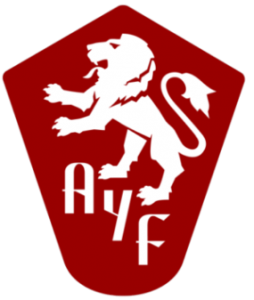Youth Turn Out in Droves for Community Educational
PASADENA, CA–As part of its ongoing commitment to popular education within the community and, especially, among the youth, the Pasadena “Nigol Touman” chapter of the Armenian Youth Federation held the latest installment in its lecture series this past Sunday, March 15, at the Pasadena Armenian Center. The guest speaker for the evening was Senya Lubisich, a professor of History at Citrus College, who spoke about the legacy of the French Revolution to a packed house of over seventy, mostly AYF members.
“With so many young people in attendance, we found the event to be very successful,” said Pasadena Educational Committee member Tro Krikorian. “The numbers are increasing with every lecture and that is the goal of our chapter: to get ourselves educated and educate as many other youth along with us.”
Before jumping into the details of the French Revolution, Lubisich began her lecture by clarifying how she viewed the concept of revolution. “We tend to use the term %u218revolution’ very loosely,” she asserted, noting how most people use it to refer to a specific event or a series of confined events that lead to some ultimate outcome.
“I tend to think of it, instead, as a longer-term process; a spark that sets off an extended series of ongoing events and changes,” explained Lubisich. Using the French example, she described how, even though the French people did not achieve democracy right away, the revolution politicized the working masses and set in motion an ongoing process for a more equal society.
Lubisich then reviewed the key events of the French Revolution and expounded upon what she felt were its three everlasting imprints on the course of human history. The first she described as the constitutional legacy and the notion that the rights of citizens must be enshrined in an agreed upon legal framework. This impact was felt immediately, as the world soon saw the rise of constitutions throughout the 19th and continuing into the 20th century.
The second lasting impact was the concept of nationalism and redefining the state from one bestowed to a royal family to one belonging to a specific linguistically, territorially, culturally and historically homogenous people. Lubisich was quick to point out that unifying the people around this new concept of nationalism was a conscious undertaking that required considerable effort and articulation. It was also one that soon spread across the world, helping spawn the modern era of the nation-state.
Finally, the French Revolution set in motion a new era of articulating popular visions of society. The traditional nobility, the liberal merchant class, and the democratic working masses all competed for the triumph of their particular vision of what a future society should look like. Today, this struggle for ideas and challenges to the status quo remains with us more commonly than ever.
Following the lecture, a lively question and answer period gave the audience an opportunity to guide the discussion towards learning from the French Revolution as it relates to Armenia. Lubisich admitted that, “Having to think in terms of a diaspora lends different factors to consider in the Armenian case.” Nevertheless, she suggested that the challenge to illegitimate authority that revolutions often pose is an important one to draw from for any society. “There is this important question of what purpose are institutions serving and do they merit legitimacy,” said Lubisich. “This question needs to always be asked; it’s an ongoing process for Armenia and even us here in America.”
According to many of the AYF members who were in the audience, the event proved to be well worth attending. “I enjoyed it a lot,” said Hrag Melkonian of the Valley “Sardarabad” Chapter. “It gave us the opportunity to get a better understanding of what has happened in the past so that we can apply it today.”
His counterpart from the “Sardarabad” Chapter, Hrag Kitsinian, agreed, saying “It was very interesting to hear about how revolutions have progressed in other cultures and what impact their aftermath has had for each country.”
The mere fact that these youth gathered together on a Sunday night to learn about a topic as momentous as the French Revolution says a great deal in and of itself. Rather than roam around in a mall or sit in front of the television, they were out exploring issues of history, social change, justice, democracy and revolution.
As summed up by Krikorian, “We usually get these types of lectures only at schools or in a classroom setting, if we’re lucky. But these are topics that all youth need to know about in order to have a clearer understanding of history and relate what’s important back to our own cause.”
The next lecture in the Pasadena “Nigol Touman” Chapter’s educational series will be on May 3rd and will feature a talk by Prof. Eloy Zarate, on the topic of other key historical revolutions. For more information, contact ayf@AYFwest.org.


Leave a Reply
Want to join the discussion?Feel free to contribute!